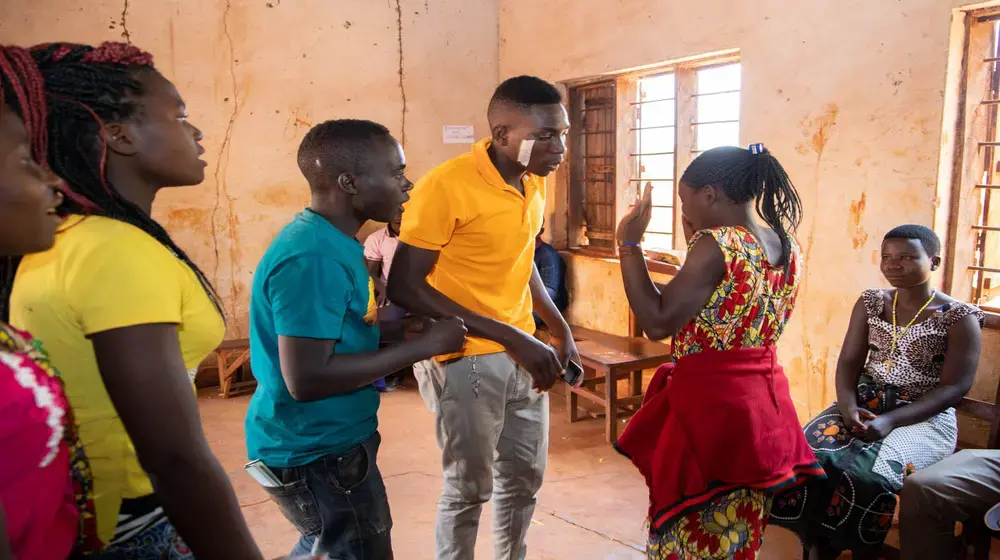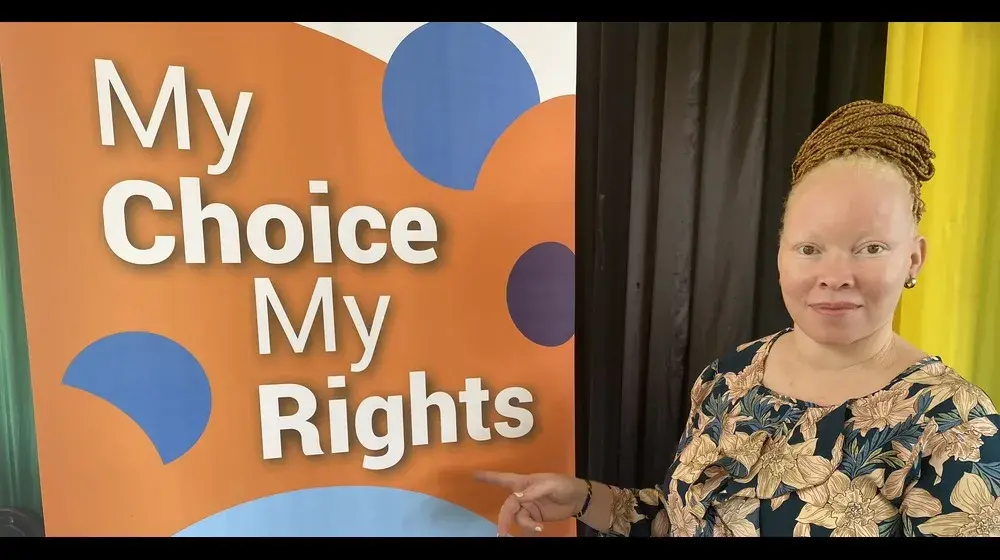Rahabu was 17 when she became pregnant and dropped out of school, crushing her dreams of becoming a teacher. She returned to her home in Kahama Town at the age of 22, after leaving her abusive husband – and now with two children – and attended and graduated from the Adolescent Girls Initiative – a programme set up by Kiota Women's Health and Education (KIWOHEDE) and supported by UNFPA that aims to help girls who have left school in Shinyanga Region, which has one of the highest drop-out rates in Tanzania.
Today, Rahabu has her own radio show and is an activist, educating her peers and their parents about the importance of girls remaining in school. She challenges young people's attitudes in her community in Kahama, making them question beliefs that a man has the right to commit violence or if a girl is harassed she did something to provoke the perpetrator.
16 champions of change
Rahabu was one of the 16 champions of change who received an award at an events ceremony on 8 December 2020 in Dar es Salaam at an event organized by Women in Law & Development in Africa (WiLDAF) and the Coalition Against Gender-Based Violence (MKUKI) – with the support of UNFPA and the Danish Embassy in Tanzania – as part of commemorations for 16 Days of Activism to End Violence Against Women.
The 16 champions of change, selected through a nomination process, came from different walks of life – and have different motivations that fuel their passion to end gender-based violence (GBV) – but they have one thing in common: they are all ordinary individuals doing extraordinary things, using their agency to fight GBV and harmful practices; they show how individual action to combat GBV can add up to a forceful nationwide movement. From a faith leader in Zanzibar, a youth activist in Shinyanga to a hip hop artist in Dar es Salaam – the champions’ collective message is loud and clear – if we work together, we will get the change we want to see – a more equal world for every woman and girl everywhere.
A whole of community effort
Notwithstanding progress in Tanzania, data shows that violence against women and girls remains unacceptably high; combatting a problem of this magnitude requires an equally powerful response. As part of 16 Days commemorations, WiLDAF and MKUKI – again with the support of UNFPA and the Danish Embassy in Tanzania – also organized a religious dialogue in Zanzibar for leaders from all faiths – key allies in driving the advancement of women and girls’ rights in Tanzania. Faith leaders issued a joint signed commitment pledging to step up efforts to end GBV and harmful practices in their communities.
The 2030 vision
As we enter 2021, with the 2030 deadline for the Sustainable Development Goals looming ever closer, UNFPA remains determined to deliver on our global pledge and will continue to support a whole of community effort; working together, harnessing energies, doing more and doing it better to realize the future we want: a safer, healthier world for every woman and girl.





